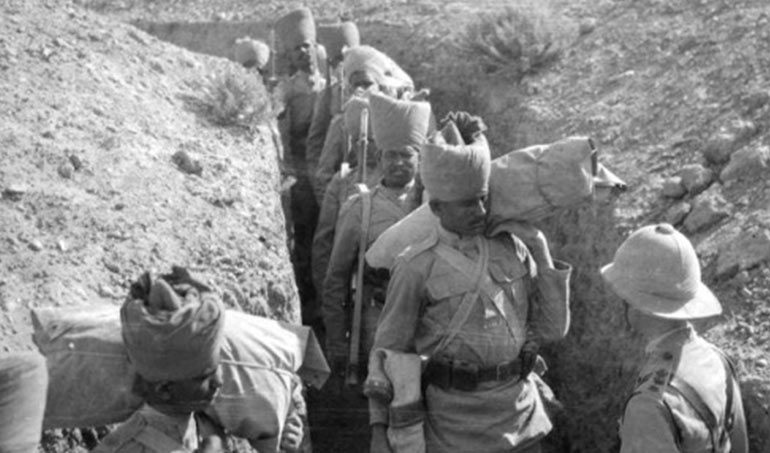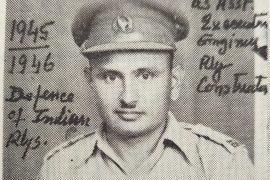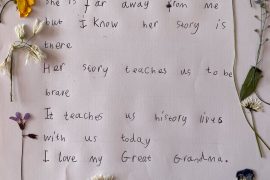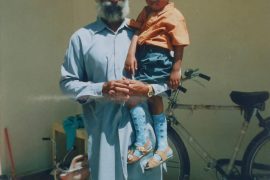The First World War was one of the biggest in history and saw new levels of violence and destruction overtake Europe.
As the great soldier-poet Wilfred Owen put it in his poem 1914:
War broke: and now the Winter of the world / With perishing great darkness closes in.
But the warfare between the old European empires drew in people from beyond the continent’s shores, including colonial subjects swept up in the conflict who fought bravely for their colonial rulers. Ansar Ullah, an activist and researcher from Brick Lane, has been working with the Imperial War Museum’s Whose Remembrance? project, which aims to unearth the untold stories of the hundreds of thousands of Africans, Indians, Caribbeans and others from former British colonies who helped the war effort. He said:
I chose South Asian seamen and specifically seamen of Bengali origin who were from the present-day Bangladesh, which was the eastern half of Bengal province in the then British India.
Bengali seamen made up the first large South Asian community in Britain, settling in the Midlands, Cardiff and London’s East End near the docks.They were called Lascars, a word that comes from the Persian “Lashkar” meaning “military camp” and “Askar”, Arabic for soldier. During the First World War Lascars took the place of British sailors recruited into the navy, with Indian seafarers making up 20 per cent of the British maritime force by the end. Nearly a million soldiers in the Indian Army, whose ranks included men from present day Bangladesh and Pakistan, also played a major part in the conflict.
Their contribution is recorded at the Tower Hill Memorial which honours British merchant seamen who lost their lives in the first and second world wars. Mr Ullah said:
Many of the names on the monument indicate seamen of Bengali origin, with names such as Miah, Latif, Ali, Choudhury, Ullah or Uddin. However, these named individuals only represent the privileged few Bengalis employed as British crew members, and exclude some 4,000 to 5,000 Lascars who died at sea and whose names were never known.
The Lascars worked for a fraction of a seaman’s wage, were often trapped in engine rooms and suffered a higher than average casualty rate.
According to Mr Ullah, Indian sources suggest 3,427 Lascars died and 1,200 were taken prisoner during the conflict. Britain has recognised the contribution of many Lascars with military honours for their service. Mr Ullah said:
With the centenary of First World War for Britain and the world looming round the corner, I am sure there will be a great deal more to discover of the South Asians’ experiences who served during that war.
by Adam Barnett , The Docklands and East London Advertiser
Tuesday 11th February 2014
For more on the First World War centenary visit www.iwm.org.uk




Comments are closed.